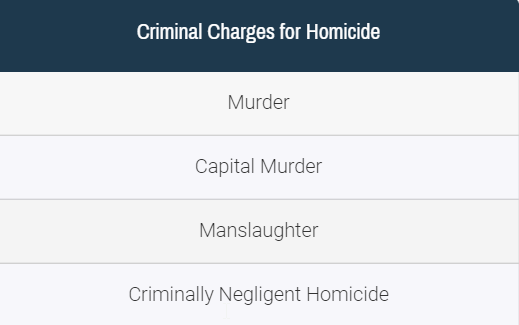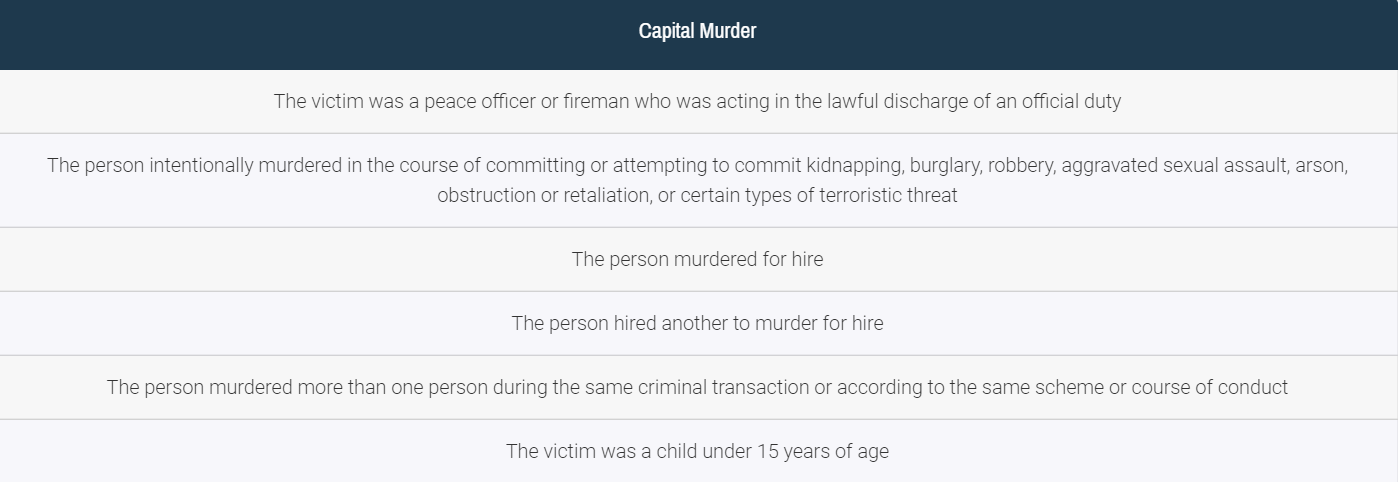Homicide

While each of these homicide offenses carries a different penalty, they all can have very serious repercussions. If you have been arrested for homicide in Lubbock County or West Texas, you need to have a criminal defense attorney with years of experience in criminal law protecting your rights, your freedom, and, for capital murder cases, your life. Call me today to schedule a free initial consultation. During this free consultation, I will evaluate your case and explain how I help my clients through situations like yours.
Required Mental States for Criminal Homicide
Intentionally
A person acts intentionally when it is their conscious objective or desire to engage in certain conduct or cause a certain result.
Knowingly
A person acts knowingly when they are aware of the nature of their conduct or are aware that their conduct is reasonably certain to cause a certain result.
Recklessly
With Criminal Negligence
A person acts with criminal negligence when they should be aware of a substantial and unjustifiable risk, as defined above, that a certain result will occur.
Relevant Statutes:
Texas Penal Code § 19.01 — Types of Criminal Homicide
Texas Penal Code § 6.03 — Definitions of Culpable Mental States
Murder
You can be charged with murder in Texas if you do any of the following:

Murder is generally a first degree felony. However, at the punishment stage of a trial, if you can adequately prove that you were acting under the immediate influence of a sudden passion that arose from a provocation at the time of the murder, the offense is a second degree felony. To have the charge reduced to a second degree felony, you will have to prove that the action that provoked you would “commonly produce a degree of anger, rage, resentment, or terror in a person of ordinary temper, sufficient to render the mind incapable of cool reflection.”
Relevant Statute:
Texas Penal Code § 19.02 — Murder
Capital Murder
Capital murder is the most serious criminal offense in Texas and the only offense that can be punished with the death penalty. Murder can be charged as a capital felony if certain aggravating factors exist when the offense is committed.
While each case is different, some common aggravating circumstances include cases where:

The jury must find beyond a reasonable doubt that the aggravating circumstance was present to convict the defendant of capital murder. If there is reasonable doubt as to the aggravating factor, the jury can still find the defendant guilty of murder or any other lesser included offense.
Relevant Statute:
Texas Penal Code § 19.03 — Capital Murder
Manslaughter
You can be charged with manslaughter if you recklessly cause the death of an individual. This means that you did not intend to kill anyone, but you consciously disregarded a substantial and unjustifiable risk that your behavior could kill someone. Manslaughter is a second degree felony.
Relevant Statute:
Texas Penal Code § 19.04 — Manslaughter
Criminally Negligent Homicide
Finally, you can be arrested for criminally negligent homicide if you cause the death of an individual through criminal negligence. This means you should have been aware that your behavior created a substantial and unjustifiable risk of killing someone, regardless of whether you actually were aware of that fact.
Relevant Statute:
Texas Penal Code § 19.05 — Criminally Negligent Homicide


